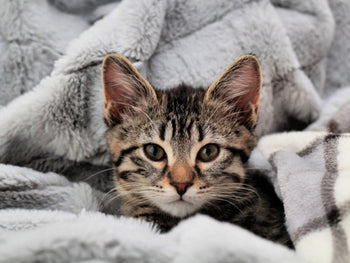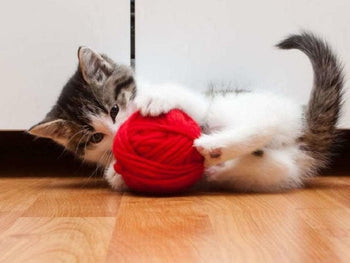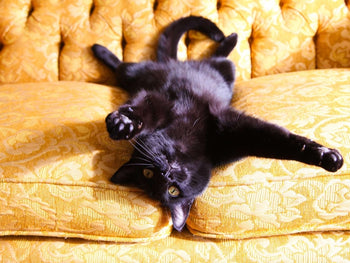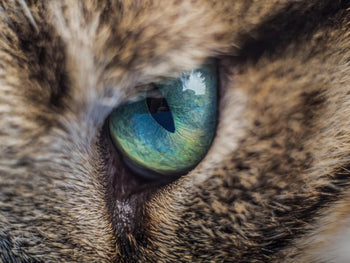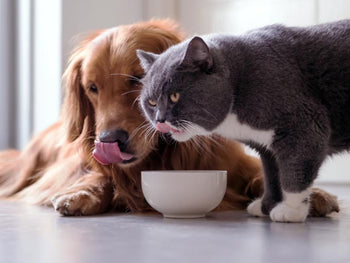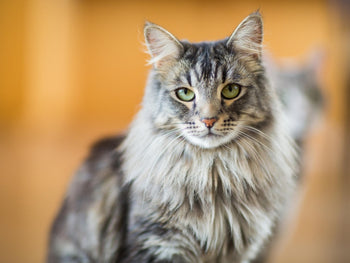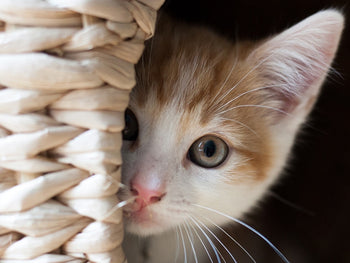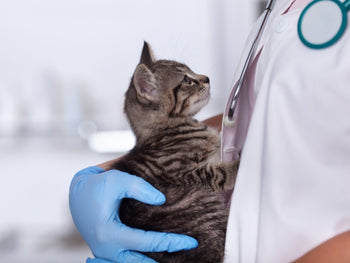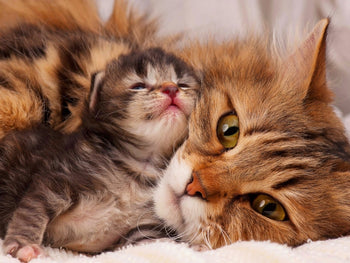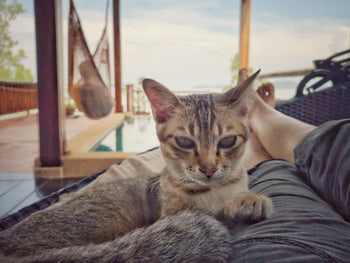Our feline pals run into toilet accidents every now and then. But if you see that your cat has poop stuck in anus, don't treat the issue lightly.

One of the most defining features of cats is that they pay special attention to the sanitary of their body. The pets may spend hours and hours grooming themselves which speak a lot about the feline's obsession with cleanliness. That is why it often comes as a major surprise for us pet owner to notice feces attached to the rear end of our cats. "So what should I do in the case my cat has poop stuck in anus?", "How could I treat my pet and prevent the issue from repeating in the future?", "Is it necessary to seek professional assistance from the vets?"
Have similar questions in mind? If that is so, you must take a good look at the information down below. The following contains everything people need to keep in mind regarding the issue of cat has poop stuck in anus.
What Cause It To Occur

Naturally, nothing happens without reason. Here are several things that might be responsible for the unsightly presence of stools on the bum of your furball.
-
Diarrhea
Similar to humans, felines also experience digesting difficulties on many occasions like constipation, vomiting, upset stomach and of course, diarrhea. When the fecal matters get softer than normal, they tend to stick to the furs near the anus of the pets. If you fail to notice that in time, the furs shall become matted over times as the feces dry. Needless to say, the matted furs make it extremely hard for cats to defecate smoothly since most of the poop got caught around the butthole. Without treatments, the health of affected pets would inevitably suffer.
-
Hairballs
Normally, cats invest substantial times and efforts into grooming the coat but during the process, they unwittingly swallow lots of their own hairs as well. In small amounts, the hairs should never cause noticeable troubles. Nonetheless, if the felines gobble down too many hairs at once then hairballs could form. Mingled with the fecal matters, hairball may considerably constrict or just outright block the anus. From the outside, it seems like your cat has poop stuck in anus while the hairballs remain out of view.
-
Arthritis
Usual cats have no problems reaching the back, they have an elastic body after all. That being said, as the pets age, it's a good idea to give them a helping hand if required. Overall, cats that contract arthritis might be incapable of grooming hairs near the rear end. Without sufficient grooming, the furs around the anus unavoidably become dry, tangled which develop into matted furs in most cases. As a result, it's strongly recommended that you look after your fluffy friend when it enters the senior ages.
-
Foreign Materials (Strings, Fabrics And Alike)
Generally speaking, our feline pals have a reputation for being curious pets so it's natural for them to take a taste of virtually everything. For most of the time, cats shall go away after having a couple of licks. However, some persistent pets may attempt to ingest small pieces of fall away materials or even swallow the whole things . Needless to say, the stomach of the pets would not take that kindly so gastrointestinal issues emerge as obvious consequences. If the materials manage to pass through the stomach, they could still block the anus.
-
Coat
In several cases, the culprit behind the issue of cat has poop stuck in anus is rather plain: the coat. Cats that have long coats have high chances of catching the feces on their coat while answering the call of nature in the litter box. That is why it's widely that if your fluffy friend is in good health, give it a trim then see how things turn out. Normally, without the excess furs around the bum, all fecal matters should drop straight into the litters without sticking to the anus of the pets.
How To Treat The Pets

When you notice something wrong with your cat, remember this particular rule of thumb: "When in doubt, ask the vets". Considering the rapid advances in the veterinary world, it's wise to consult vets if your pets run into problems. Through the well-trained professionals, you would be able to receive helpful advice, reliable diagnoses, proper medications and so on. Hence, if you truly want to be on the safe side, take your furball to veterinary clinics the moment you spot odd signs on it.
Note: Though it's possible to treat certain issues in cats at home, pet owners must refrain from doing anything without firmly grasping the fundamentals. Incorrect treatment might worsen the situation which put the life of the felines in danger.
What To Do To Stop The Issue From Surfacing Again

-
Put Together A Sound Diet
Assuming that cats eat healthily every day, they should rarely experience significant health issues long after they reach old ages. For pets that have a long history of stomach upsets, food allergies, diarrhea and alike, it's necessary for people to give them optimized meals. Of course, contact the vets if you need some recommendations. Usually, fiber right diets would ensure that cats have peaceful times in the litter box.
-
Encourage The Pets To Drink
Water plays a critical in sustaining various body functions of cats including smoothing the bowel movement but unfortunately, some pets seem to be lazy drinkers. Therefore, it's strongly recommended that you attempt to improve the daily intake of water of your fluffy friend so as to keep it hydrated. In the case your wallet permits, purchase several cat fountain because most cats often like to drink from moving waters.
-
Gently Groom The Soft Coat
By grooming your cat periodically, you not only deepen the bond between you and your cat but also take care of potential issues in time. Because a number of potential causes behind the appearance of fecal matters on the bum of cats happen to relate to the coat, grooming the coat should minimize its resurgence.
Read more Cat's Health Guides and find fun stuffs on Cattybox!!
